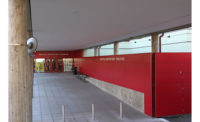
The post September 11th era has served as a paradigm for what the security industry is encountering in the marketplace today. Given the broad range of threats that we face, security has become an all-encompassing mission that begins at the front door or parking lot gate and extends to every department and every employee within an organization. Whether it’s a Fortune 500 company, regional business enterprise, or public facility, clients are expecting proven and effective security solutions that address a number of security and critical life safety risks, all in a seamless integrated platform.
To meet this challenge a new breed of Security Company must emerge in our industry that is technologically savvy and excels at providing a broad range of high-level security services. The “next-generation†security provider must possess a new level of system design and engineering capabilities supported by an organization that can provide turnkey services and solutions that historically the systems integrator and traditional alarm company have not been able to provide independently. A convergence of the core competencies of the integrator and the traditional alarm company will occur, driven by market demands and technology advances.
Security companies must position themselves to deliver services beyond the design and installation of systems. The next-generation security provider will need to function as an Application Service Provider (ASP) in order to administer and monitor a customer’s access control, video surveillance and critical alarm systems via a centralized platform running across the internet, minimizing the capital investment a customer must make in their internal security infrastructure. This means that security companies must make significant hardware and Customer Relationship Management (CRM) software upgrades in order to reliably and effectively manage remote video and access control systems across the network. Some companies already have developed these skills, but to be successful in the future, they will have to develop all of these abilities.
Recent developments with open systems connectivity and digital technologies have served to significantly enable these enhanced integrated services, which have in turn placed the security provider in a much more integral role with their customers. As this role becomes increasingly more vital, the expectations and loyalty of the customer will grow exponentially.
Clearly, technology is changing the landscape and is the driving force behind the convergence of traditional alarm companies’ and integrators’ core competencies. Obtaining certifications for networks and operating systems is also becoming a necessity as most solutions integrate with a LAN/WAN and operating systems from the likes of Microsoft, Linux, or UNIX. Enabled by technology and bandwidth availability, central station-managed access and video are becoming a larger component of recurring revenues and in the future they will become key to continued growth in recurring revenues, as the traditional alarm monitoring business is beginning to mature in the commercial market. Providers that can excel at delivering these cutting-edge services will generate substantial recurring revenues from these two fastest-growing security technologies.
Manufacturers will be facing increasing pressure to develop “open architecture†solutions that will enable all of these emerging technologies to work together.
The real winners will be those manufacturers and security providers who work closely together to evaluate the overall risks and security threats and develop total solutions that the new breed of security company can deliver to their customers. In the end, the distinction between the traditional alarm company and the systems integrator will disappear. The successful company of the future will possess all of the core competencies of what we know today as an integrator and an alarm company to become a true ASP.
